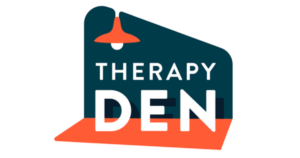Whether you're seeking depression counseling near me, looking into anxiety therapy near me, or searching for an anxiety therapist near Sugar Land, TX, Dr. V provides compassionate care tailored to your needs:
Is a perpetually negative outlook bringing you down and impacting your relationships with others?
Are you feeling empty, hopeless, or lost?
Does it sometimes feel like the whole world is against you?
If you’ve been experiencing a host of dissatisfying emotions such as fear, anxiety, and depression, you’re not alone. Many people struggle with emotional difficulties at one point in life or another. But if you’re looking to break the cycle in favor of a healthier, more content way of thinking, it’s time to schedule an appointment with Dr. V, your Therapist in Sugar Land. Even if you’ve never seen a therapist before, you owe it to yourself to give therapy a chance.
We offer Counseling and psychotherapy for the following at our Counselor Sugar Land TX location:
- Anger and stress management
- Panic attacks
- Anxiety
- Obsessive–Compulsive Disorder (OCD)
- Post-Traumatic Stress Disorder (PTSD)
- Fears and Phobias (fear of flying, bugs, driving on freeways, dentists, and crowds)
- Mood disorders like major depression and bipolar disorder
- Disruptive behavior disorders like conduct disorder and oppositional defiant disorder
- Attention Deficit Hyperactivity Disorder (ADHD)
- Sleep issues
- Self-esteem
- Academic and professional struggles
- Addiction
- Habits and lifestyle change
- Pre-and post-surgery support
- Pain management
- Erectile dysfunction
- Major life transitions (struggling after losing your job, losing your near and dear ones, coping with a medical illness, or dealing with major relationship problems and/or divorce)
- Coping skills
Discover personalized support with our Depression Counseling Near Me and Anxiety Therapy Near Me services at Dr. V’s Sugar Land practice.
Everything You Need To Know About Anxiety
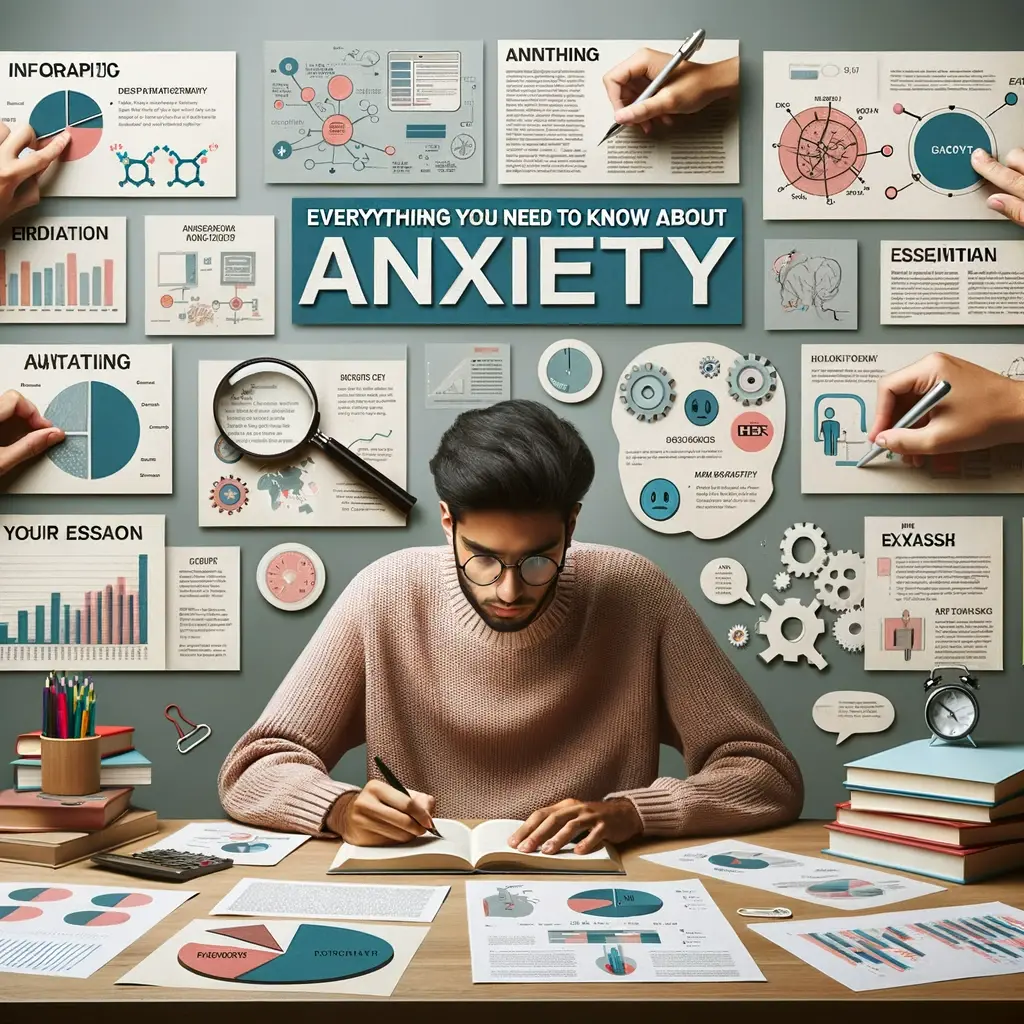
What are the common symptoms of anxiety?
Understanding the Common Symptoms of Anxiety
Anxiety is a natural response to stress, but when it becomes overwhelming or chronic, it can interfere with daily activities and overall well-being. Recognizing the symptoms of anxiety is the first step towards seeking help and managing the condition. If you’ve ever found yourself searching for an “Anxiety Therapist Near Me,” you’re not alone. Here’s a comprehensive look at the common symptoms of anxiety:
- Excessive Worrying One of the most common signs of generalized anxiety disorder (GAD) is excessive worrying. This type of worry is persistent, occurring on most days for at least six months, and is difficult to control.
- Restlessness People with anxiety often describe feeling “on edge” or restless. This can manifest as an inability to sit still, constant fidgeting, or a feeling of being “wound up.”
- Fatigue While it might seem contradictory, chronic anxiety can lead to fatigue. This is because the constant state of heightened alertness can be exhausting for the body and mind.
- Difficulty Concentrating An anxious mind often struggles to focus on one task, leading to forgetfulness or difficulty completing tasks.
- Irritability People with anxiety may become easily irritated or agitated, even over minor issues.
- Muscle Tension Chronic muscle tension, especially in the neck, shoulders, and back, is a physical manifestation of anxiety. Some people might not even realize they’re tense until they seek physical therapy or massage.
- Sleep Disturbances Trouble falling asleep, staying asleep, or experiencing restless, unsatisfying sleep are common symptoms of anxiety.
- Panic Attacks These are sudden episodes of intense fear that trigger severe physical reactions, such as rapid heartbeat, shortness of breath, and dizziness. Panic attacks can be very frightening and can make individuals feel like they’re losing control or having a heart attack.
- Avoidance Behavior People with anxiety might avoid certain situations or places that trigger their anxiety. This can lead to social isolation or a reluctance to face certain tasks.
- Physical Symptoms Apart from muscle tension, anxiety can also cause other physical symptoms like headaches, trembling, sweating, rapid heartbeat, and gastrointestinal problems.
Conclusion Anxiety is more than just feeling stressed or worried. It’s a complex condition with a range of symptoms that can affect both the mind and body. If you or someone you know is experiencing these symptoms, it’s essential to seek professional help. If you’ve been searching for an “Anxiety Therapist Near Me,” consider scheduling a 15-minute phone call with Dr. V, a licensed therapist who can provide guidance and support tailored to your needs.
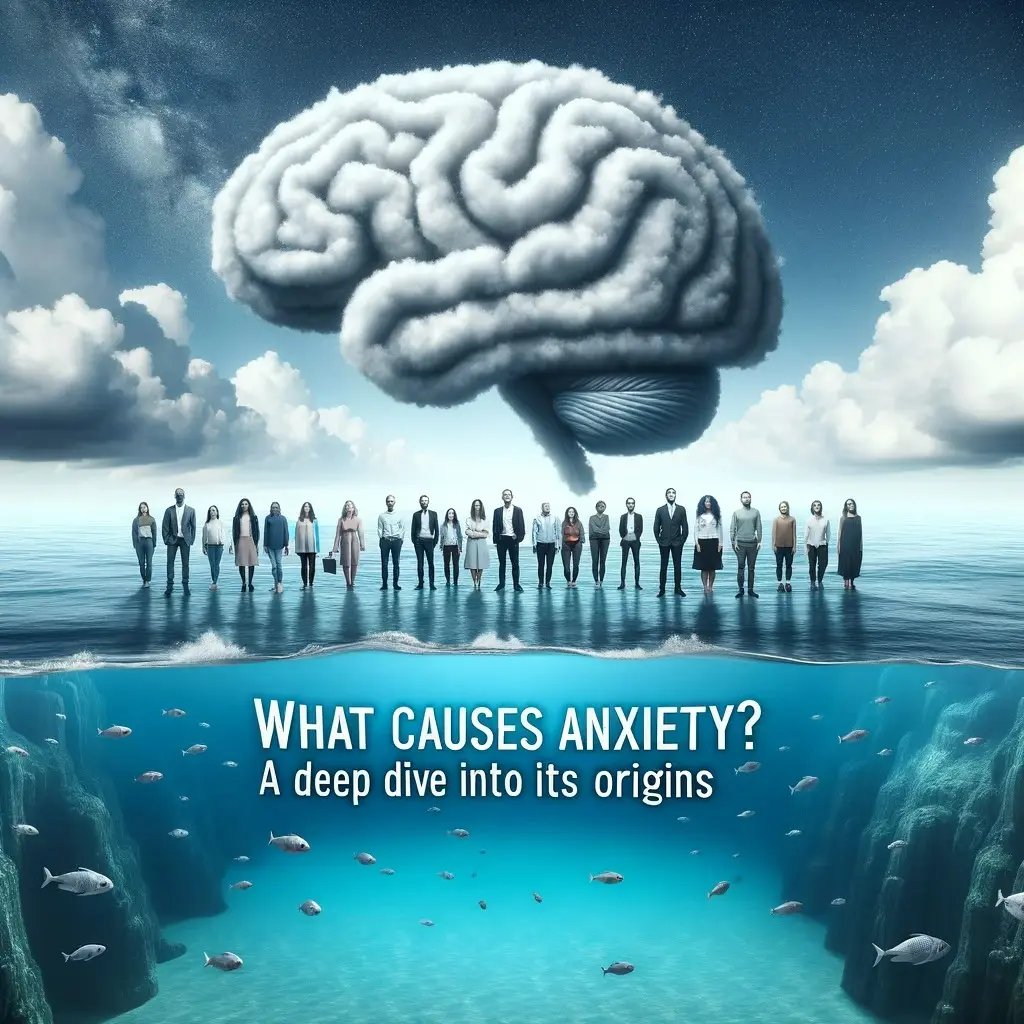
What Causes Anxiety?
A Deep Dive into its Origins
Anxiety is a natural emotion that everyone experiences at some point in their lives. It can be a normal reaction to stress, but for some, it can become overwhelming and chronic. Understanding the root causes of anxiety can be the first step towards seeking help and finding relief. If you’ve ever found yourself searching for “anxiety counseling near me,” you’re not alone. Here’s a closer look at what causes anxiety:
- Genetics Research suggests that people with certain genes are more prone to developing anxiety disorders. If anxiety runs in your family, you might be at a higher risk.
- Brain Chemistry Neurotransmitters are chemicals in the brain that play a role in mood and emotions. An imbalance in these chemicals can lead to feelings of anxiety.
- Personality Certain personality types are more susceptible to anxiety. For instance, people with perfectionist tendencies or low self-esteem might experience anxiety more frequently.
- Traumatic Events Experiencing traumatic events, especially during childhood, can lead to anxiety later in life. This includes physical or emotional abuse, the death of a loved one, or witnessing a traumatic event.
- Chronic Medical Conditions Having a chronic medical condition, such as heart disease or diabetes, can lead to feelings of anxiety. The constant worry about one’s health can be a significant stressor.
- Substance Abuse The misuse of drugs or alcohol can lead to anxiety. Additionally, withdrawal from these substances can also trigger anxiety symptoms.
- Stress Chronic stress, whether from work, relationships, or financial troubles, can be a significant contributor to anxiety. The body’s constant state of high alert can lead to prolonged feelings of unease.
- Other Mental Health Disorders People with other mental health disorders, such as depression, might also experience anxiety as a symptom.
Conclusion Anxiety can be caused by a combination of factors, including genetics, brain chemistry, personality, and life events. It’s essential to understand that anxiety is a complex condition, and its causes can vary from person to person. If you or someone you know is struggling with anxiety, it’s crucial to seek professional help. If you’ve been searching for “anxiety counseling near me,” consider taking the next step. Schedule a 15-minute phone call with Dr. V, a licensed therapist, to discuss your concerns and explore the best treatment options tailored to your needs.
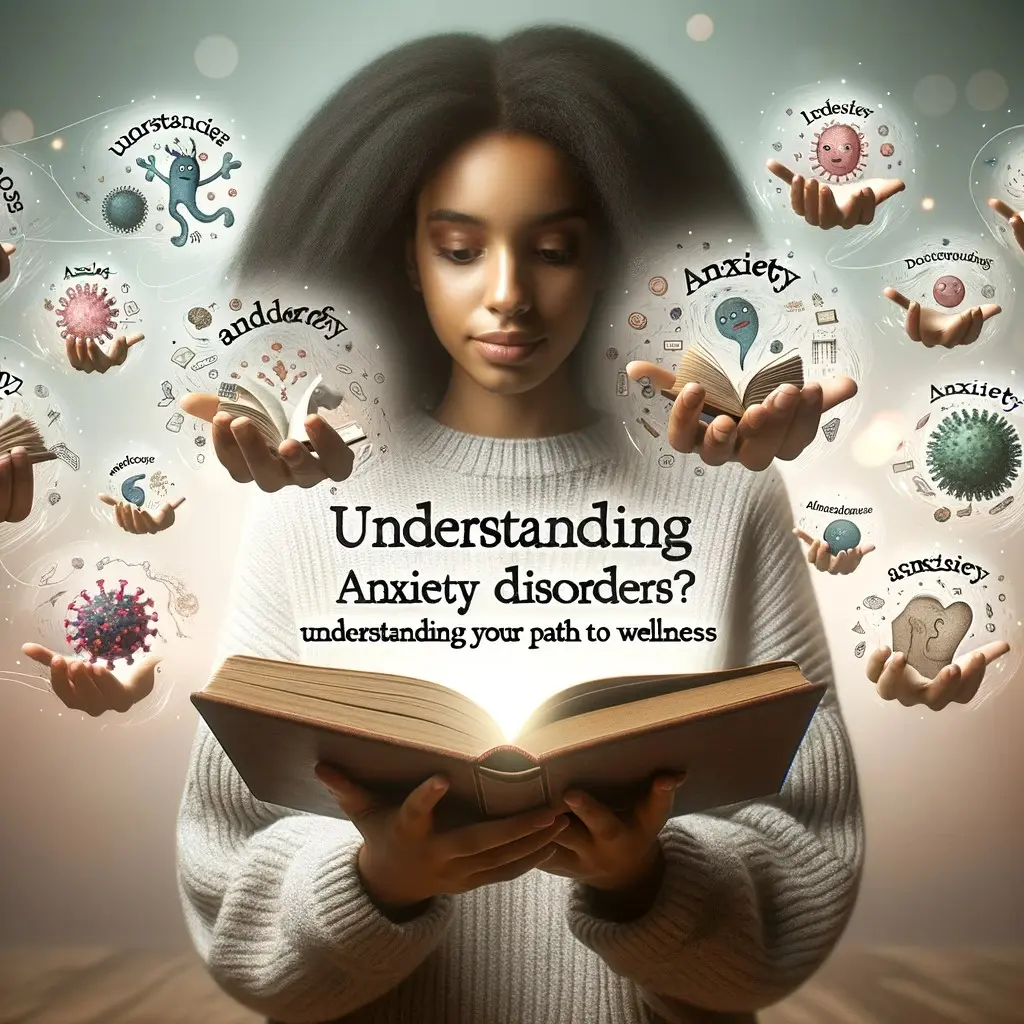
What Are the Different Types of Anxiety Disorders?
Understanding Your Path to Wellness
In the digital age, our society is more connected than ever, yet the feeling of disconnection, fear, and worry often permeates our daily lives. These emotions can sometimes be normal responses to the challenges we face. However, when they become persistent, they may point to an anxiety disorder. Understanding the different types of anxiety disorders is not only crucial for mental health professionals but also for anyone struggling with these overwhelming feelings. With one in thirteen people globally experiencing anxiety, according to the World Health Organization, recognizing and addressing anxiety disorders is increasingly relevant in our high-stress, fast-paced modern world.
Understanding the nuances of anxiety disorders is the first step towards reclaiming control over your mental well-being. By engaging with this topic, individuals can identify the specific challenges they face, making it easier to seek appropriate support and intervention, as offered by professionals like Dr. V, a seasoned therapist based near Sugar Land, TX.
Delving into the Different Types of Anxiety Disorders
Anxiety disorders come in various forms, each presenting unique challenges. Here’s a look at the most common types, alongside insights and success stories from Dr. V’s practice:
- Generalized Anxiety Disorder (GAD): Characterized by chronic, excessive worry about various events or activities. Individuals with GAD find it difficult to control their worry, which can lead to physical symptoms like restlessness, fatigue, or sleep disturbances.
- Panic Disorder: Involves recurrent, unexpected panic attacks. These intense episodes of fear may include palpitations, pounding heart, or accelerated heart rate, often leading to feelings of ongoing fear of additional attacks.
- Phobias: Include excessive fear of specific objects, situations, or activities. The fear is out of proportion to the actual danger posed by the feared object or situation.
- Social Anxiety Disorder: Characterized by high levels of anxiety, fear, and avoidance of social situations due to feelings of embarrassment, self-consciousness, and concern about being judged or viewed negatively by others.
- Obsessive-Compulsive Disorder (OCD): While OCD is often categorized separately from anxiety disorders, it involves patterns of unwanted thoughts and fears (obsessions) that lead you to do repetitive behaviors (compulsions).
- Post-Traumatic Stress Disorder (PTSD): Can develop after experiencing or witnessing a traumatic event. Symptoms may include flashbacks, nightmares, severe anxiety, and uncontrollable thoughts about the event.
Success Stories from Dr. V’s Practice
Through tailored therapy sessions, Dr. V has helped numerous clients navigate their unique anxiety disorders. For instance, one client with GAD learned coping strategies that helped manage their excessive worries, significantly enhancing their quality of life. Another client suffering from social anxiety disorder was able to build confidence over time, eventually thriving in social situations they once feared.
Taking the Next Step
Knowledge is the precursor to change. Understanding the different types of anxiety disorders illuminates the path to wellness, allowing for targeted strategies that address your specific needs. Are you ready to take the all-important step towards understanding and managing your anxiety?
Don’t navigate the complexities of anxiety alone. Reach out for professional support. Schedule a free 15-minute phone call with Dr. V for personalized guidance and reassurance: Book Your Call Today.
Frequently Asked Questions
- How do I know if I have an anxiety disorder? If you’re experiencing frequent, persistent bouts of fear, worry, or anxiety that affect your day-to-day life, it’s important to seek professional help. Dr. V can provide a safe space for discussion and accurate evaluation.
- Can anxiety disorders be cured or only managed? Anxiety disorders can often be managed effectively with the right treatment, which may include therapy, lifestyle changes, and sometimes medication. Complete recovery is possible for many individuals.
- Are panic attacks and anxiety attacks the same? No, they’re different. Panic attacks come on suddenly and involve intense and often overwhelming fear, while anxiety attacks are a response to a perceived stressor or threat and are less intense.
- Do I need medication for my anxiety disorder? Not everyone with an anxiety disorder will require medication. Therapies like CBT, relaxation techniques, and lifestyle changes are highly effective. Dr. V can discuss the best approach for your specific situation.
- How can therapy help with my specific type of anxiety? Therapy, especially with a skilled therapist like Dr. V, is tailored to address the specific symptoms and challenges you face with your type of anxiety. It’s about finding the approach that works best for you.
Understanding anxiety disorders is the first step in your journey toward wellness. With Dr. V’s expertise and support, a life with managed or even free from anxiety is not just a possibility; it’s within your reach. Start your journey today, and remember, seeking help is a sign of strength.

How does anxiety manifest in children and how can it be addressed?
Recognizing and Alleviating Anxiety in Children: A Guide to Nurturing Resilience
In the bustling pace of today’s world, filled with stimuli, challenges, and high expectations, anxiety doesn’t only affect adults. Children, too, face immense pressure, leading to an unprecedented need to understand how anxiety manifests in our younger generations. The CDC reports that 7.1% of children aged 3-17 years (approximately 4.4 million) have diagnosed anxiety. As alarming as these statistics are, they highlight the urgency of addressing this issue comprehensively.
For parents, caregivers, educators, and anyone involved in a child’s life, recognizing the early signs of anxiety and knowing how to intervene can be life-altering for these young individuals. With the guidance of professionals like Dr. V, a dedicated therapist, children can learn to manage their anxiety effectively, paving the way for a balanced, resilient, and happy life.
How Anxiety Manifests in Children
Unlike adults, children may not be able to verbalize their feelings of anxiety. The manifestations are often behavioral and can include:
- Physical symptoms: Complaints of stomachaches, headaches, or feeling unwell, especially during stressful events like school exams.
- Emotional changes: Experiencing excessive irritability, crying, or unexpected outbursts.
- Behavioral cues: Avoiding participating in class activities, social events, or drastic changes in academic performance.
- Sleep disturbances: Difficulty falling or staying asleep, nightmares, or resistance to go to bed.
Strategies to Address Anxiety in Children
The approach to managing a child’s anxiety involves a combination of professional intervention, home support, and school-based strategies. Here are some methods that have proven effective, including insights from Dr. V’s practice:
- Professional Counseling: Therapy with a specialist in child anxiety, like Dr. V, can equip children with coping skills to manage their anxiety.
- Parental Support: Parents play a critical role in helping children manage anxiety. Consistent routines, open communication, and reassuring responses are beneficial.
- School-based Interventions: Collaborating with teachers to ensure a supportive school environment is essential. Interventions may include accommodations during tests or presentations, depending on the child’s needs.
- Building a Support Network: Encouraging children to talk about their feelings with trusted friends or family members can be profoundly comforting.
Dr. V’s Real-World Successes
In his practice, Dr. V has witnessed tremendous growth in children who’ve learned to manage their anxiety. One young client, who previously struggled with separation anxiety, eventually found joy in attending school and spending time with friends independently after several counseling sessions. Another triumph involved a child who overcame intense fear of academic failure, subsequently embracing learning with newfound confidence.
Your Child Deserves to Thrive
Anxiety doesn’t have to dictate your child’s life. With the right support, they can navigate through their feelings and emerge stronger, more resilient, and confident. If your child is struggling with anxiety, remember, acknowledging the problem is the first step to empowering them.
Begin this journey with professional support. Schedule a free 15-minute phone call with Dr. V to explore how counseling can make a monumental difference in your child’s life: Start Here.
Frequently Asked Questions
- How can I tell if my child’s behavior is due to anxiety or just a phase they’re going through? Distinguishing between typical developmental behavior and anxiety can be challenging. Persistent fear, worry, or behavioral changes that interfere with school, home life, or friendships may be indicators of anxiety.
- Can very young children, like toddlers, experience anxiety? Yes, children as young as toddlers can experience anxiety, often manifesting as intense clinginess, fear of new situations, or extreme tantrums.
- Does my child need medication for anxiety? Medication isn’t always the first line of treatment for children with anxiety. Therapeutic approaches, lifestyle changes, and support can often be effective. Dr. V can guide you through various options suitable for your child’s situation.
- What role do parents play in a child’s anxiety therapy sessions? Parents are integral to a child’s therapy process. They can provide essential background information, reinforce strategies at home, and offer ongoing support and encouragement.
- How long does it take for a child to see improvements with their anxiety through therapy? Every child is unique. Some may show improvements within a few weeks of therapy, while others may need longer. Consistency and patience are key in this process.
Addressing anxiety in children is a delicate journey, but with the right support, they can learn to manage their fears and thrive. Dr. V’s expertise and compassionate approach provide a safe, constructive space for your child to work through their anxiety. It’s time to take that vital step towards their well-being and happiness.
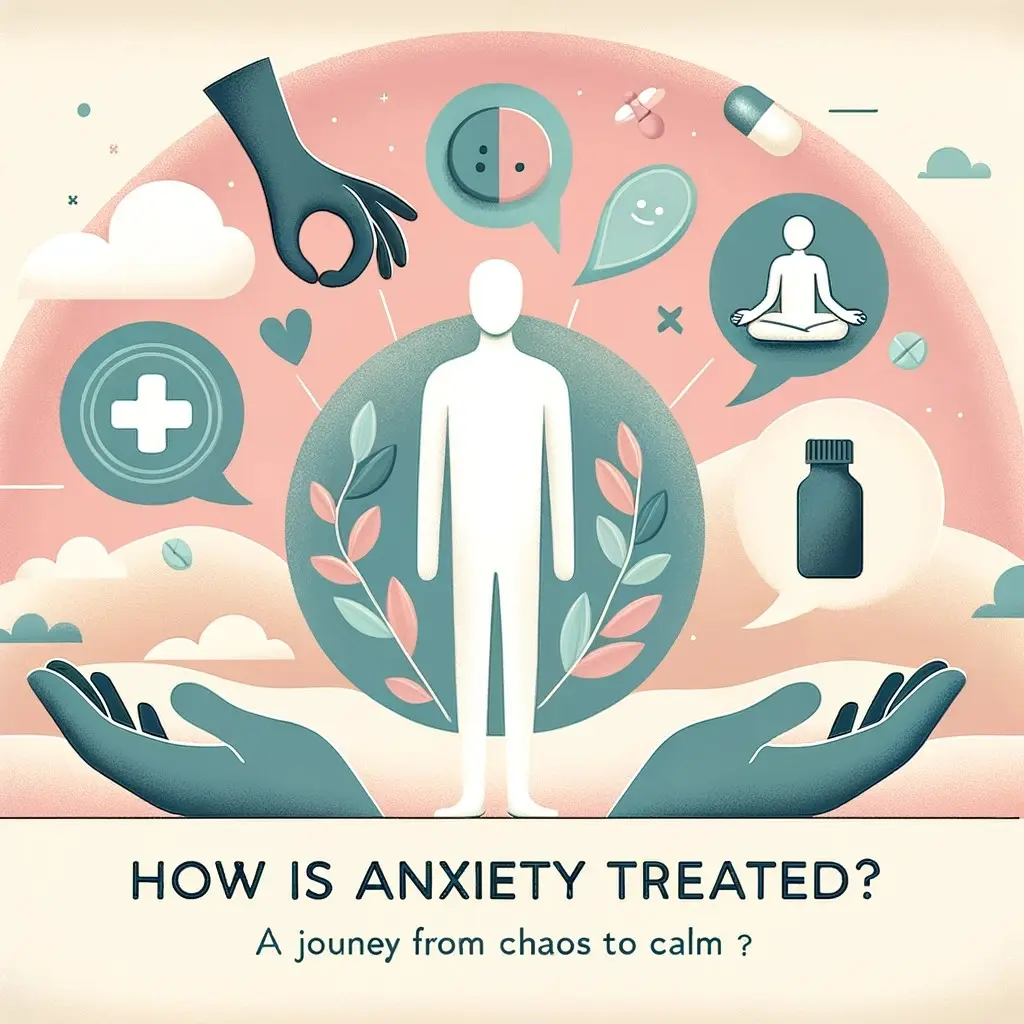
How is Anxiety Treated?
A Comprehensive Guide
In today’s whirlwind of deadlines, digital dominance, and daily pressures, anxiety often clings to our consciousness, unnoticed until it’s a heavy presence we can’t ignore. The Anxiety and Depression Association of America reveals a striking reality – anxiety disorders are the most prevalent mental health affliction in the U.S., impacting 40 million adults every year. In our contemporary, breakneck world, understanding and mitigating anxiety is not just relevant; it’s essential. Left unchecked, anxiety can escalate, significantly disrupting our social ties, performance, and overall health.
Identifying anxiety is crucial, but the real journey is managing and treating it. Here, professionals like Dr. V, a licensed psychotherapist near Sugar Land, TX, play a critical role. With extensive experience and deep insights into mental health, Dr. V has successfully shepherded numerous individuals through their anxiety challenges, helping them regain the tranquility and balance that once seemed unattainable.
But how is anxiety treated, and how can engaging with therapies, especially with an “anxiety therapist near Sugar Land TX,” revolutionize your life?
Decoding Anxiety Treatment
Anxiety is as individual as our fingerprints, meaning its treatment requires a uniquely tailored approach. Often, this involves a combination of various therapeutic methods and lifestyle modifications. Here’s a detailed look:
- Therapy: Numerous therapeutic modalities exist for treating anxiety. Dr. V specializes in several effective methods:
- Cognitive-Behavioral Therapy (CBT): This strategy involves identifying and understanding negative thought patterns and learning how to manage and alter them.
- Acceptance and Commitment Therapy (ACT): ACT teaches individuals to stop avoiding, denying, and struggling with their inner emotions and, instead, accept that these feelings are appropriate responses to certain situations.
- Mindfulness-Based Cognitive Therapy (MBCT): This method combines cognitive therapy’s ideas with meditative practices and attitudes based on the cultivation of mindfulness.
- Exposure Therapy: Particularly effective for obsessive-compulsive and post-traumatic stress disorders, this therapy involves exposure to the source of the fear or trauma in a controlled environment to allow for healing.
- Relaxation Techniques and Breathing Exercises: Techniques such as deep breathing exercises, meditation, and yoga can help calm the mind and control the physiological symptoms of anxiety.
- Lifestyle Changes: Healthy living can greatly counteract anxiety. Regular physical activity, a balanced diet, sufficient sleep, and mindfulness practices are often incorporated into a holistic approach to anxiety management, which Dr. V passionately advocates.
Success Stories From Dr. V’s Practice
While adhering to strict client confidentiality, Dr. V’s practice has seen remarkable transformations. One client, through a combination of MBCT and traditional talk therapy, found they could manage their anxiety symptoms without the medications they’d once considered indispensable. Another, utilizing techniques from ACT, learned to embrace their emotions, significantly reducing their anxiety levels and enhancing overall well-being.
Concluding Thoughts: Your Path Awaits
Anxiety doesn’t have to script your life’s story. With the right tools and support, you can author a narrative of resilience and peace. The power of personalized therapeutic intervention, as facilitated by experienced therapists like Dr. V, can be your key to a brighter, balanced life.
Ready to take that decisive step on your path to wellness? Schedule a free 15-minute phone call with Dr. V, a distinguished anxiety therapist near Sugar Land, TX, for personalized guidance and support: Book Your Call Today.
Frequently Asked Questions
- Is anxiety really manageable without medication? Yes, various therapies and lifestyle adjustments have proven effective in managing anxiety. Dr. V, a licensed psychotherapist, specializes in holistic approaches and various therapies like CBT, ACT, and MBCT, which address the root causes of anxiety.
- What if I’ve tried therapy before with no success? Every therapeutic relationship and approach is different. Dr. V’s personalized methods, incorporating different therapies and techniques, offer new perspectives and strategies that may resonate with you uniquely.
- Can exercises for relaxation and breathing really make a difference? Definitely. Techniques like deep breathing exercises and relaxation therapy can significantly reduce the physiological symptoms of anxiety, helping to calm the mind.
- How does exposure therapy work? Exposure therapy involves gradual and controlled exposure to the sources of your fear and anxiety, allowing you to confront them and gradually reduce the anxiety response.
- I’m interested in mindfulness. How does it fit into treatment? Mindfulness is central to therapies like MBCT. It teaches you to focus on the present, helping to alleviate the endless cycle of negative thoughts that feed anxiety.
Confronting anxiety is a courageous step, but you’re not alone. With professionals like Dr. V by your side, a journey toward peace and control is more than a possibility; it’s a reality within reach. Start your journey today, and consider how reaching out for “anxiety therapy near me” could be the first step toward reclaiming your joy and serenity.
Scheduling an appointment has never been so easy
> The best way to set up an appointment is to schedule a free 15-minute call.
To set up a free 15-minute call, please click on the “Let’s Talk” or "Get Started" button below and fill out the form. Dr. V will call you at the time you have specified on the form. The information you provide on this form will remain confidential and secure.
Dr. V will help answer questions about his services and therapy in general. This free 15-minute call does not establish a therapist-client/patient relationship as this is not counseling and/or life coaching.
If we mutually find that our services work well for you, we’ll schedule a time to have an initial appointment. You’ll get a link to fill out intake forms using our secure client portal. You can create a free account on our secure EMR (Electronic Medical Record) system.
> We offer evening and Saturday appointments!
> Interested in starting your journey towards a better self with your very own counselor therapist in Sugar Land, TX?







